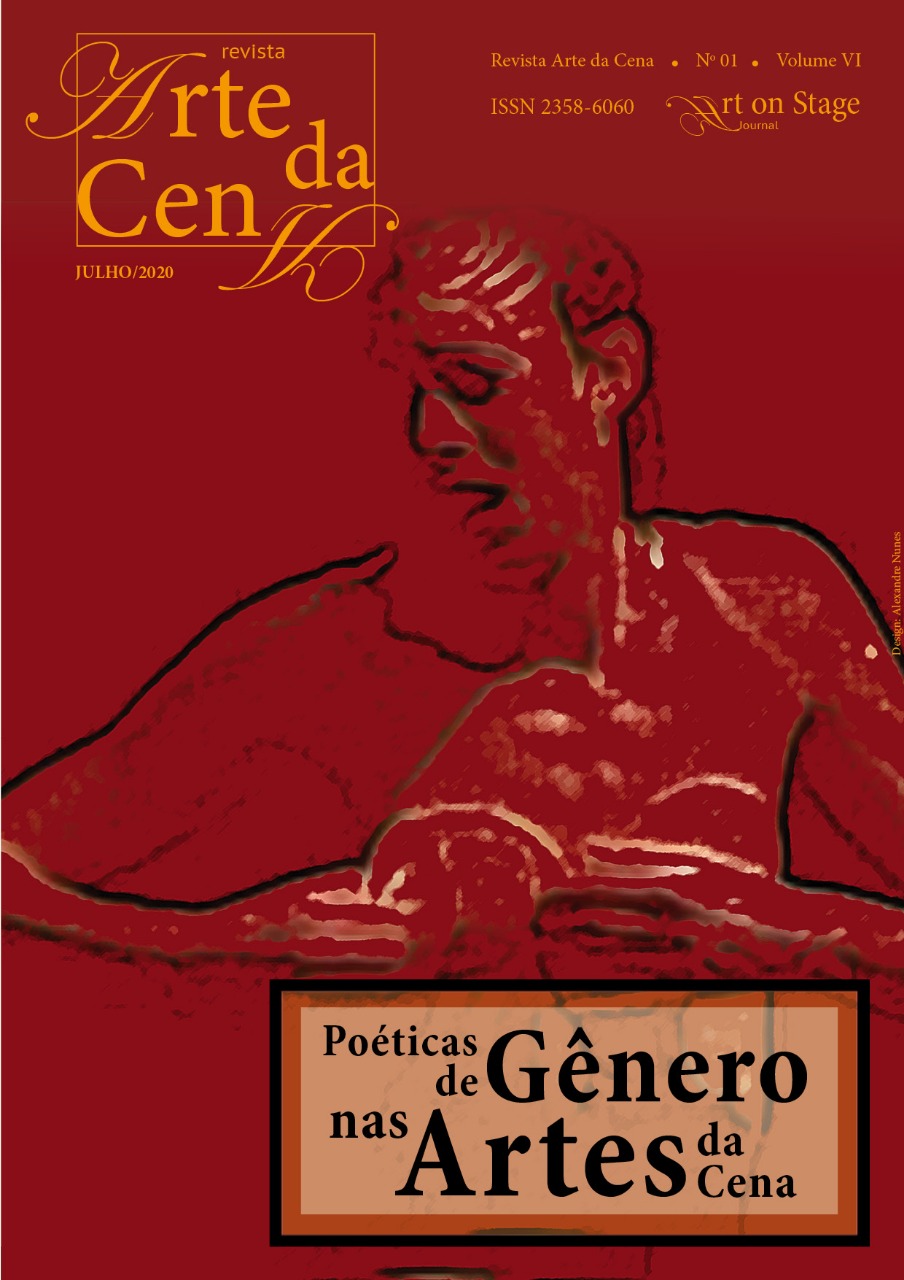THE CHORUS AS A SPACE MODIFYING AGENT IN THE STAGING OF GLUCK’S ORPHEUS AND EURYDICE OPERA
DOI:
https://doi.org/10.5216/ac.v6i1.62450Abstract
In 2019, the Opera Center from Paraná’s State School of Music and Fine Arts/UNESPAR performed the opera Orpheus and Eurydice (1762) by Christoph Willibald Gluck. This paper explores the theatrical proposal and the creative process of the performance, which aimed to integrate the chorus and the scenography by a wide range of actions in order to constantly transform the scenic space. Recovering aspects from the ancient greek theater choruses, in which the members performed the triple duty of narrating, singing and dancing, and considering the dance in a broad meaning, according to Cláudia Andrade (comprehending body expression, several actions and movements in general), it was sought that the chorus developed meaningful actions interacting with the scenic objects. By handling them in many ways, the chorus acted as a space modifying agent, sometimes even becoming scenography itself. In order to achieve this outcome, it was necessary to develop and apply self-knowledge and body experiment techniques to the chorus members, with the intent of expanding body limits and the ability to sing while carrying out different actions.
Keywords: Chorus; Opera; Scenography; Movement; Body.
Downloads
References
BUTTERWORTH, Philip; MCKINNEY, Joslin. The Cambridge Introduction to Scenography. New York: Cambridge University Press, 2009.
GLUCK, Christoph Willibald. Orfeo ed Euridice. Kassel: Bärenreiter, 1962. 1 partitura (190 p.). Orquestra.
GRIMAL, Pierre. Dicionário da mitologia grega e romana. Rio de Janeiro: Bertrand Brasil, 2011.
GUSE, Cristine Bello. O cantor-ator: um estudo sobre a atuação cênica do cantor na ópera. São Paulo: Editora Unesp, 2011.
MARON, Paulo; NETO, Diósnio Machado; VELARDI, Marília. Ópera coreográfica: experiência e possibilidades para dramaturgias do corpo. Dramaturgias, v. 1, n. 2-3, 28 dez. 2016.
PAVIS, Patrice. Dicionário de teatro. São Paulo: Perspectiva, 2015.
PEIXOTO, Fernando. Ópera e encenação. Rio de Janeiro: Paz e Terra, 1986.
VELARDI, Marília. O corpo na ópera: alguns apontamentos. Sala Preta, v. 11, n. 1, p. 45-52, 21 dez. 2011.
Downloads
Published
How to Cite
Issue
Section
License
The Art on Stage Journal uses the Creative Commons - Attribution-Non-Commercial 4.0 International license as a basis for transferring rights, for open access journals (Open Archives Initiative - OAI).
Authors who publish in this journal agree with the following terms:
1) Authors retain the copyright and grant the Art on Stage Journal the right to first publication, with the work simultaneously licensed under the Creative Commons Attribution Non Commercial License.
2) Authors are authorized to assume additional contracts separately, for non-exclusive distribution of the version of the work published in this Journal (eg, publishing in institutional repository or as a book chapter), with acknowledgment of authorship and initial publication in this journal.
3) Authors are allowed and encouraged to publish and distribute their work online (eg in institutional repositories or on their personal page) at any point before or during the editorial process, provided that the reference to the place of publication is cited, that is, the electronic address / reference of Art on Stage Journal.
4) The authors of the works published in the Art on Stage are expressly responsible for their content.
5) Authors will not be paid for publication of works in the Art on Stage Journal.



